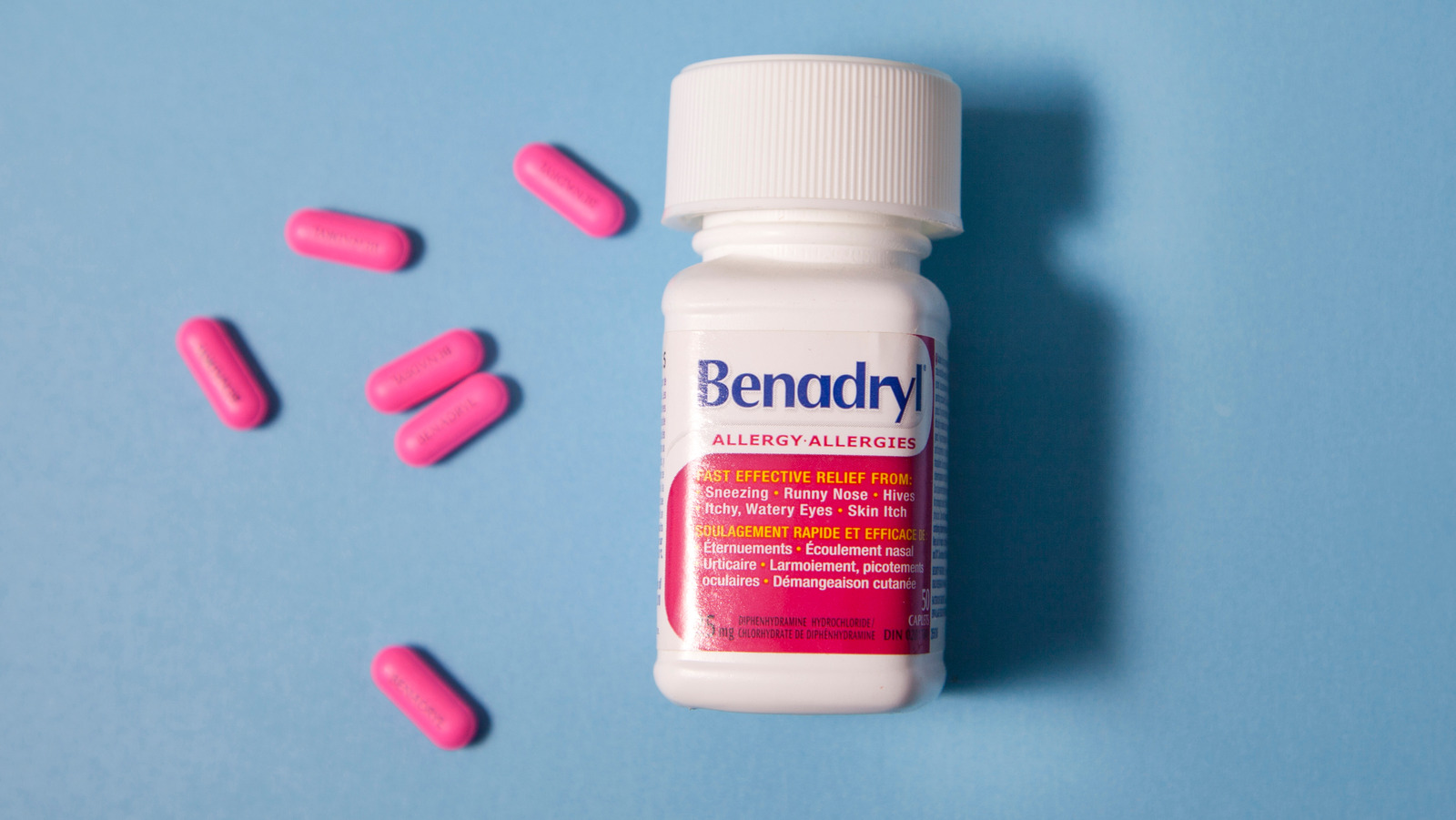Exploring the Potential of Benadryl for Anxiety Relief : A Comprehensive Analysis
Anxiety is a prevalent mental health concern that affects millions of people worldwide. While therapy and medications are often recommended to manage anxiety, some individuals seek alternative approaches. One such approach that has garnered attention is the use of Benadryl for anxiety. Benadryl, a commonly used antihistamine, is primarily known for its effectiveness in treating allergies and sleep disturbances. In this article, we delve into the concept of using Benadryl for anxiety relief, examining the potential benefits and considerations surrounding this unconventional approach.

1. Understanding Benadryl
An Antihistamine's Role Benadryl, also known by its generic name diphenhydramine, is an antihistamine that blocks histamine receptors in the body, alleviating symptoms of allergies and helping induce sleep. While it's not traditionally prescribed for anxiety, some individuals have reported using Benadryl to manage mild anxiety symptoms due to its sedative effects.
2. Benadryl's Sedative Properties and Anxiety
One reason some people consider using Benadryl for anxiety is its sedative properties. Benadryl can cause drowsiness, which may lead to a calming effect for those experiencing heightened anxiety. However, it's important to note that Benadryl's sedative effects might not directly target the underlying causes of anxiety and could potentially mask other emotional responses.

3. Temporary Relief or Long-Term Solution?
Using Benadryl for anxiety may provide temporary relief, but it's essential to recognize that this approach doesn't address the root causes of anxiety. Anxiety is a complex mental health condition that requires a comprehensive treatment plan, potentially involving therapy, lifestyle changes, and, in some cases, medication specifically designed to manage anxiety.
4. Safety Considerations and Side Effects
Before considering Benadryl for anxiety relief, it's crucial to be aware of potential side effects and safety considerations. Common side effects of Benadryl include drowsiness, dry mouth, blurred vision, and dizziness. Overusing Benadryl can also lead to tolerance and may have negative implications for your overall health. Consulting a healthcare professional is essential before using Benadryl for anxiety, as they can provide personalized guidance based on your medical history and individual needs.
5. Potential Risk of Dependence
Long-term use of Benadryl for anxiety is not recommended due to the potential risk of developing dependence. Relying on any medication, even over-the-counter ones like Benadryl, as a primary coping mechanism for anxiety can hinder personal growth and the development of healthier coping strategies.

6. Integrative Approaches to Anxiety Management
While using Benadryl for anxiety may offer short-term relief, it's best used as part of an integrative approach to anxiety management. This approach might include therapy, mindfulness practices, exercise, and lifestyle changes that address the underlying causes of anxiety and promote overall well-being.
7. Seeking Professional Guidance
If you're considering using Benadryl for anxiety, it's crucial to consult a healthcare professional before making any decisions. A qualified healthcare provider can assess your individual situation, provide insights into potential risks and benefits, and offer guidance on alternative treatments that may be more suitable for long-term anxiety management
Conclusion
While some individuals may find temporary relief from anxiety symptoms by using Benadryl, it's essential to approach this with caution and under the guidance of a healthcare professional. Benadryl's sedative properties should not replace comprehensive anxiety management strategies that address the root causes of anxiety and promote overall mental well-being. If you're seeking lasting relief from anxiety, consider exploring evidence-based treatments and consulting a healthcare provider to develop a personalized and effective anxiety management plan.